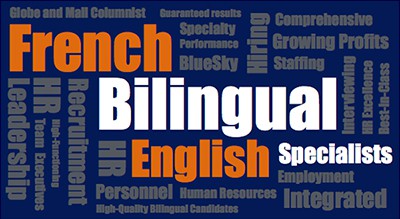Leverage your international experience to change direction
The following article was originally posted on Thursday, February 2, 2012 in The Globe And Mail.
The question:
I’m an international Canadian teacher and have been teaching history while living overseas with my family for the past five years. We decided that our adventure has lost some of its allure and my wife has plans for her own business back in Canada. So we are returning after a much enjoyed and adventurous chapter of life in Southeast Asia.
My personal concern is what I should do now? I’m 30 years old, hold a BA, BEd, and am a member of the B.C. College of Teachers, but I’ve decided that I don’t want to teach any more. At least not for a long while. My original plan was law school, but marriage, children and travel won over law school so I’ve spent the last four years working abroad as opposed to studying at home.
Will I be the old guy in class or will my worldly experience and international stripes be valued by admissions, peers and teachers? In three years when I graduate, will 33 be too old to interest firms hiring graduates for articling or other entry-level work? Three years is a long time to support a family and graduate school costs on a single income. Are there B.C. government programs that support people in my situation with things like tuition or living expenses?
I’m passionate about law and business on the international stage and I’m driven to change my career path. I’m looking for a practical education to enter into a professional employment with a high degree of financial security. I don’t think it’s too late to change and I certainly don’t feel like an old dog, but I’d really appreciate a little mentorship to make this transition without stepping into avoidable pitfalls.
The answer:
First, I applaud you on recognizing that it’s never too late to make a change. I see many people in unhappy careers, who stick to what they know simply because they are afraid of taking a risk. What these people often don’t realize is – a second, third or even fourth career is common in today’s work force. In contrast, the days of the 35-year career are quickly becoming obsolete.
HR professionals and hiring managers understand that passions can change for people over time. They’d rather have an ever-evolving, highly motivated team that brings a wide range of experiences to the table from multiple careers, than having stagnant employees who feel indifferent about their work.
This philosophy is also reflected in higher learning environments today, so you are much more likely to be appreciated in class for your worldly experiences and international stripes, than be seen as the “old guy.” Chances are, you also won’t be the only 30-year old in your program.
Since you are already one step ahead of many others who want to make a transition in their careers (in that, you already know the new direction you want to take), consider developing a focused employment strategy throughout your studies, to help set yourself up for the best opportunities once you graduate. This can include:
- Research and develop a target list of potential law firms or other companies you want to work for, and seek out internships or summer placements with them while you’re a student. Perhaps you can leverage your years of work experience with companies who specialize in doing business with Southeast Asia. You can sell your understanding of their business culture and nuances that only locals would know. Often, temporary opportunities over a summer or through co-op type placements can help land that ideal permanent job.
- Join industry associations under student memberships, and volunteer and network among key industry players to get yourself known.
- Work with a recruiter who specializes in this industry, and articulate in your job search that you are seeking an entry-level position. If you apply only to relevant positions that fit your qualifications, and make your expectations clear to employers from the start, you will avoid the pitfalls of being judged as “overqualified” based on your previous career.
- Finally, as you embark on this exciting but financially challenging time as a student, make sure to thoroughly research various government programs that could provide you and your family with some support. Here are a few to get you started: The federal government’s CanLearn website, B.C.’s StudentAidBC offers information about grants and bursaries, and the B.C. government’s Transitions Program, which is aimed at those seeking to change careers.











